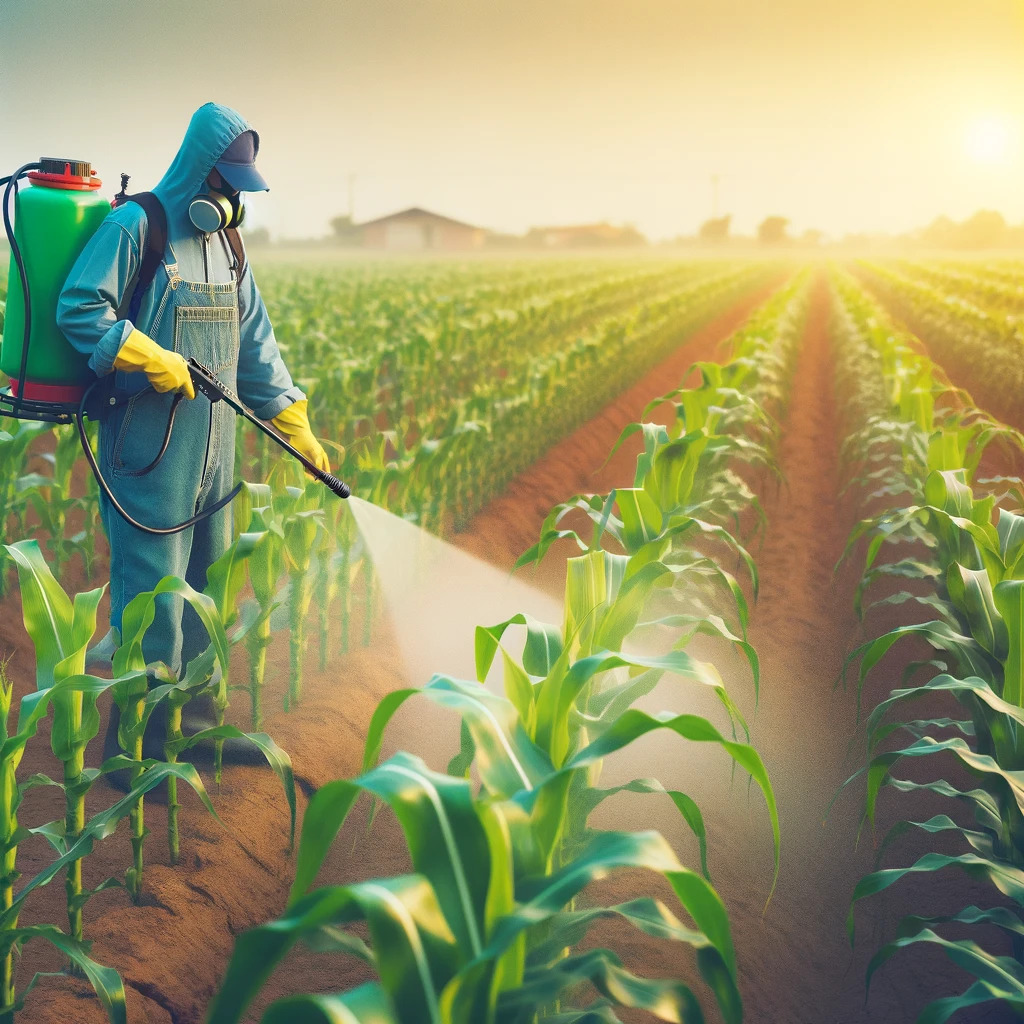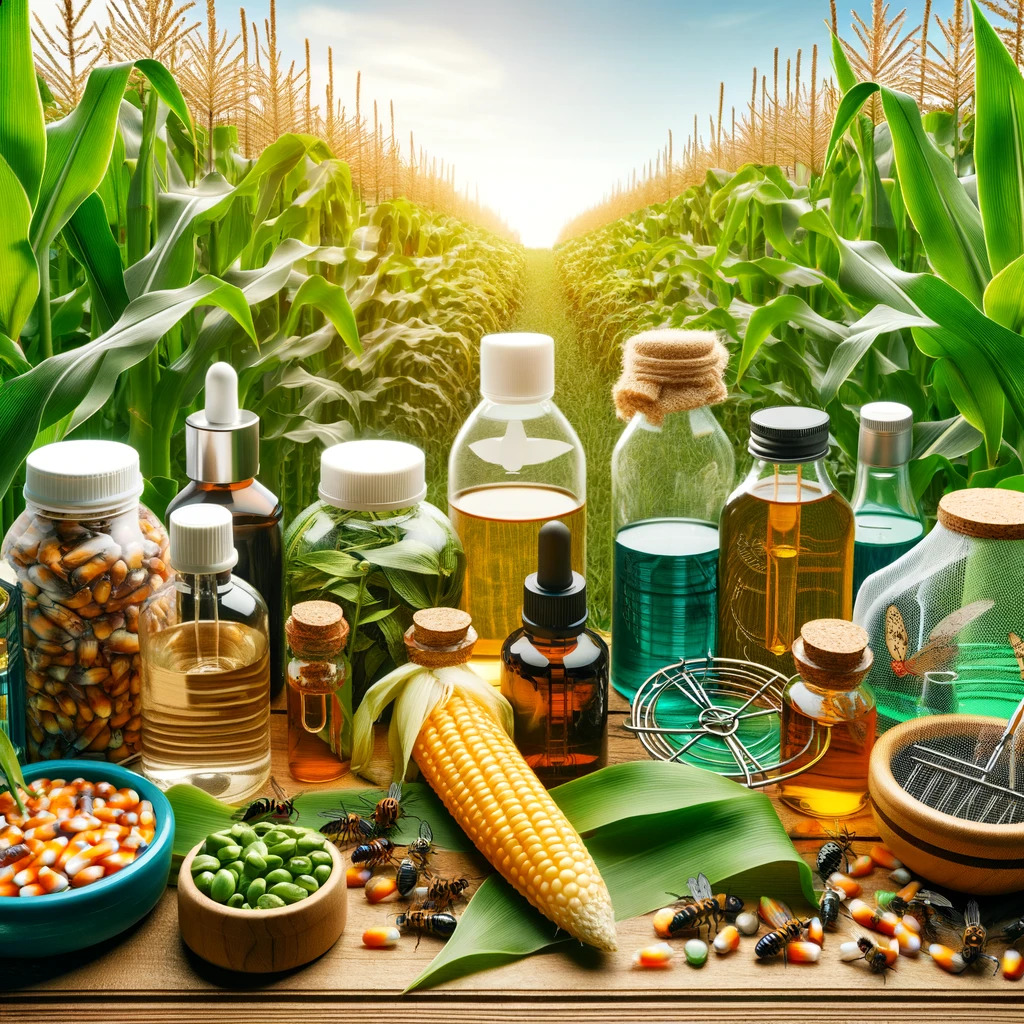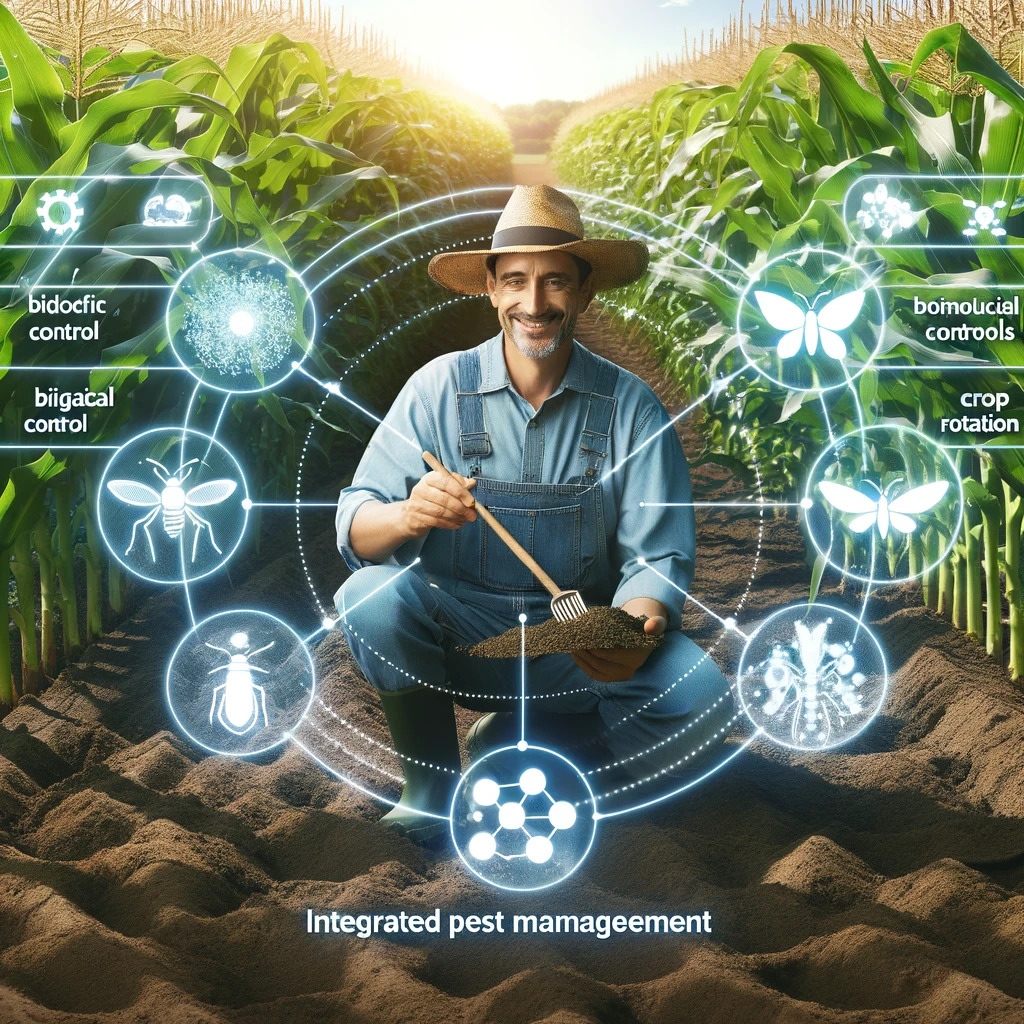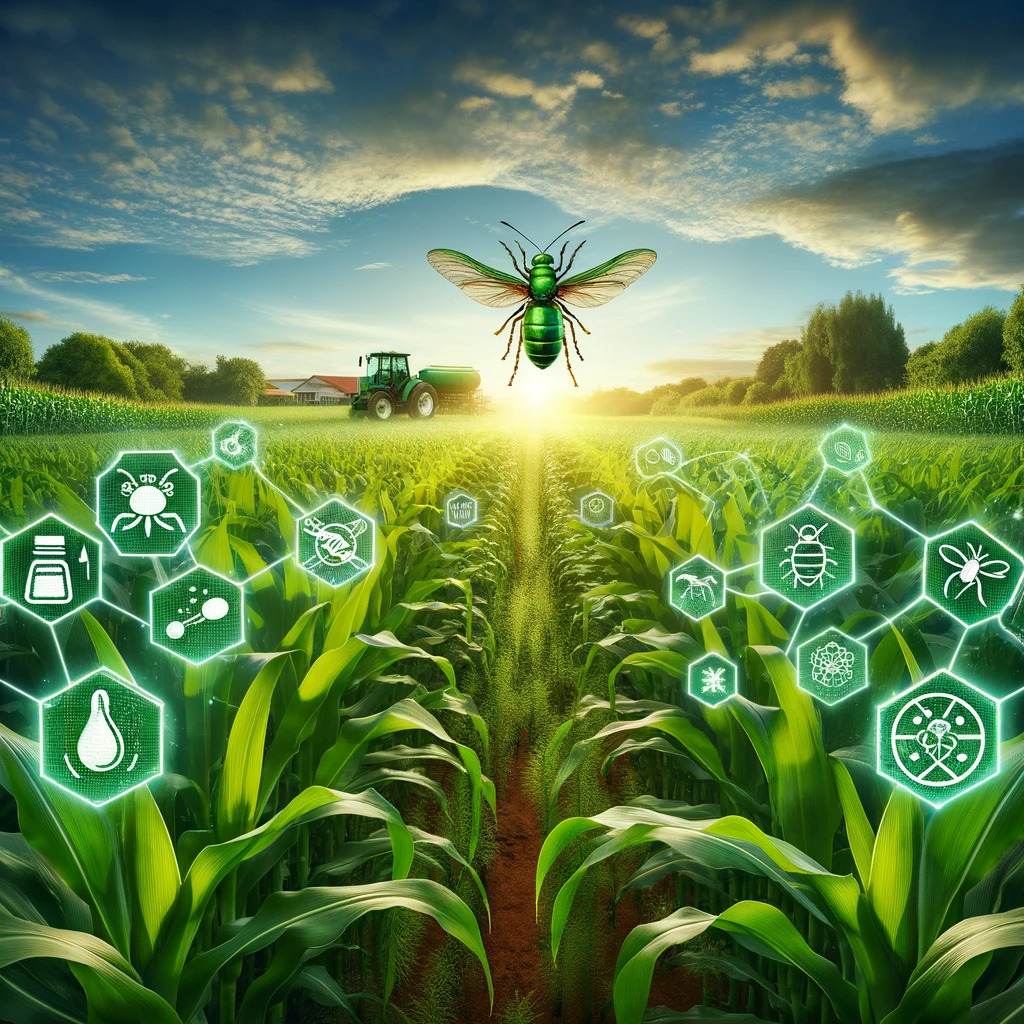
New Solutions for Old Challenges: The Rise of Biopesticides
In a world where sustainability has become a priority, biopesticides are emerging as an effective and environmentally friendly solution for pest control in agriculture. These products, created from natural materials such as plants, bacteria, and minerals, are gaining popularity, especially in organic corn production. This article explores the effectiveness of biopesticides, their environmental safety, and their integration into modern agricultural systems, marking a new era in pest management.
Features and Benefits of Biopesticides

Efficiency and Environmental Respect
Biopesticides are derived from natural sources and offer several advantages over conventional chemical pesticides. Their primary appeal lies in their specificity; many biopesticides act only against the targeted pests, minimizing the impact on non-target organisms like pollinators and natural predators. Moreover, they tend to break down more rapidly, reducing the risks of environmental contamination and residues in crops. Here, we will detail how these products are a safer option for pest control, benefiting both farmers and the environment.
Types and Applications of Biopesticides in Organic Corn

Diverse Tools for Sustainable Agriculture
Biopesticides come in various forms, including microbial, plant extract-based, and pheromone-based. Microbial biopesticides, for example, use bacteria like Bacillus thuringiensis to control harmful insect larvae in corn. Plant extracts and essential oils, on the other hand, offer a way to repel or inhibit pests and pathogens. Pheromones are used to confuse or attract insects for control. This section will illustrate how these different types of biopesticides are applied in organic corn farming, highlighting specific examples and their modes of action.
Integration of Biopesticides in Integrated Pest Management

Complementing Strategies for Effective Control
Integrating biopesticides into an integrated pest management (IPM) approach can significantly enhance their effectiveness. In IPM, biopesticides are used in combination with other practices such as biological control, crop rotation, and plant genetic resistance. This combination allows for more effective and sustainable pest control. We will delve into how farmers are adopting biopesticides within their IPM strategies, providing examples of how this integration has resulted in more robust and healthy corn production systems.
Towards a Greener Future: The Transformative Potential of Biopesticides
The rise of biopesticides in modern agriculture is not just a trend but a necessity for a more sustainable future. Their ability to offer effective and environmentally friendly solutions for pest control in crops like corn is a key piece of the puzzle for sustainable agriculture. By embracing biopesticides, farmers not only protect their crops but also contribute to a healthier and more resilient agricultural ecosystem.
 AgronoBlog – Agriculture Blog
AgronoBlog – Agriculture Blog 


